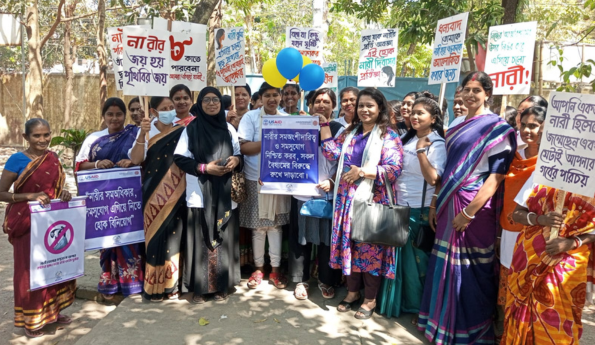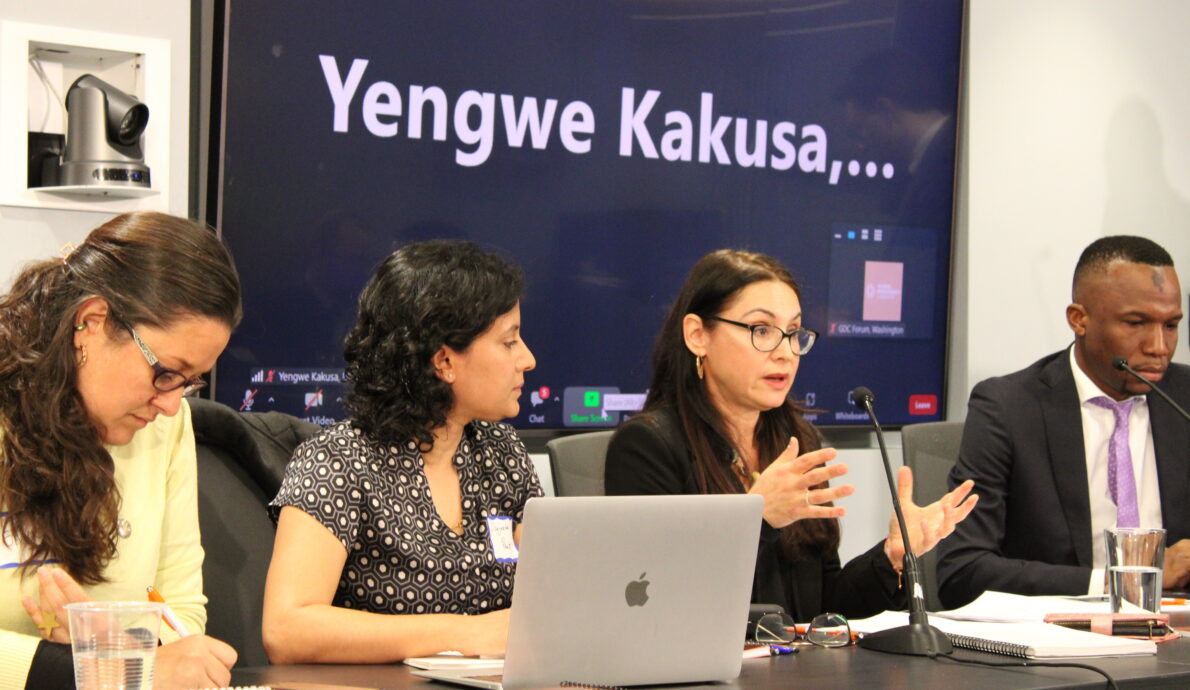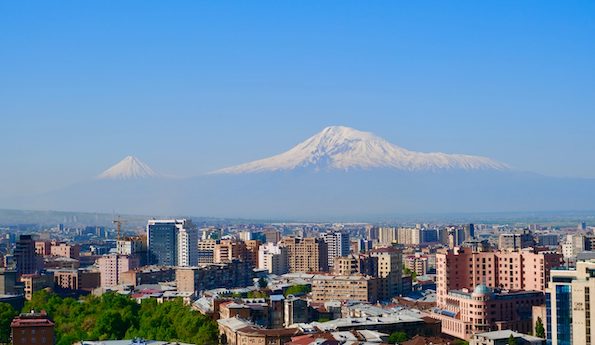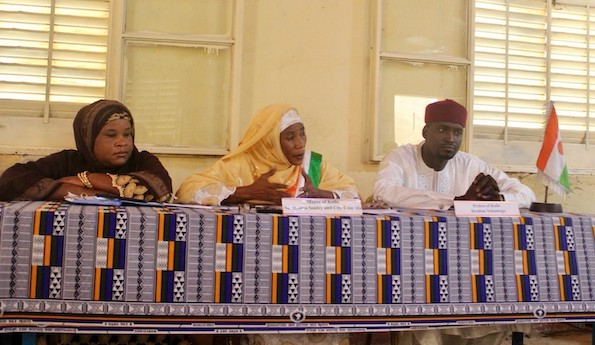This is part of a series of occasional dispatches by staff on issues related to our work.
Byrn Norrie is a program assistant at Counterpart. She recently traveled with our senior governance director Kourtney Pompi to Seoul, South Korea to attend the Global Democracy Coalition Forum, in advance of the Summit for Democracy. Here she reflects on her experience. The opinions expressed in this blog are the author’s and do not express the views or opinions of Counterpart.
Just 35 miles south of one of the most notorious authoritarian regimes in the world, members of civil society and world leaders gathered to celebrate democracy and discuss ways to keep it alive in the face of mounting threats and pressure from anti-democratic forces. The importance of this juxtaposition was not lost. Throughout the third Summit for Democracy from March 18-20, celebrations of civil society and democracy shone brightly against the backdrop of what could be if democratic values and ideals erode.
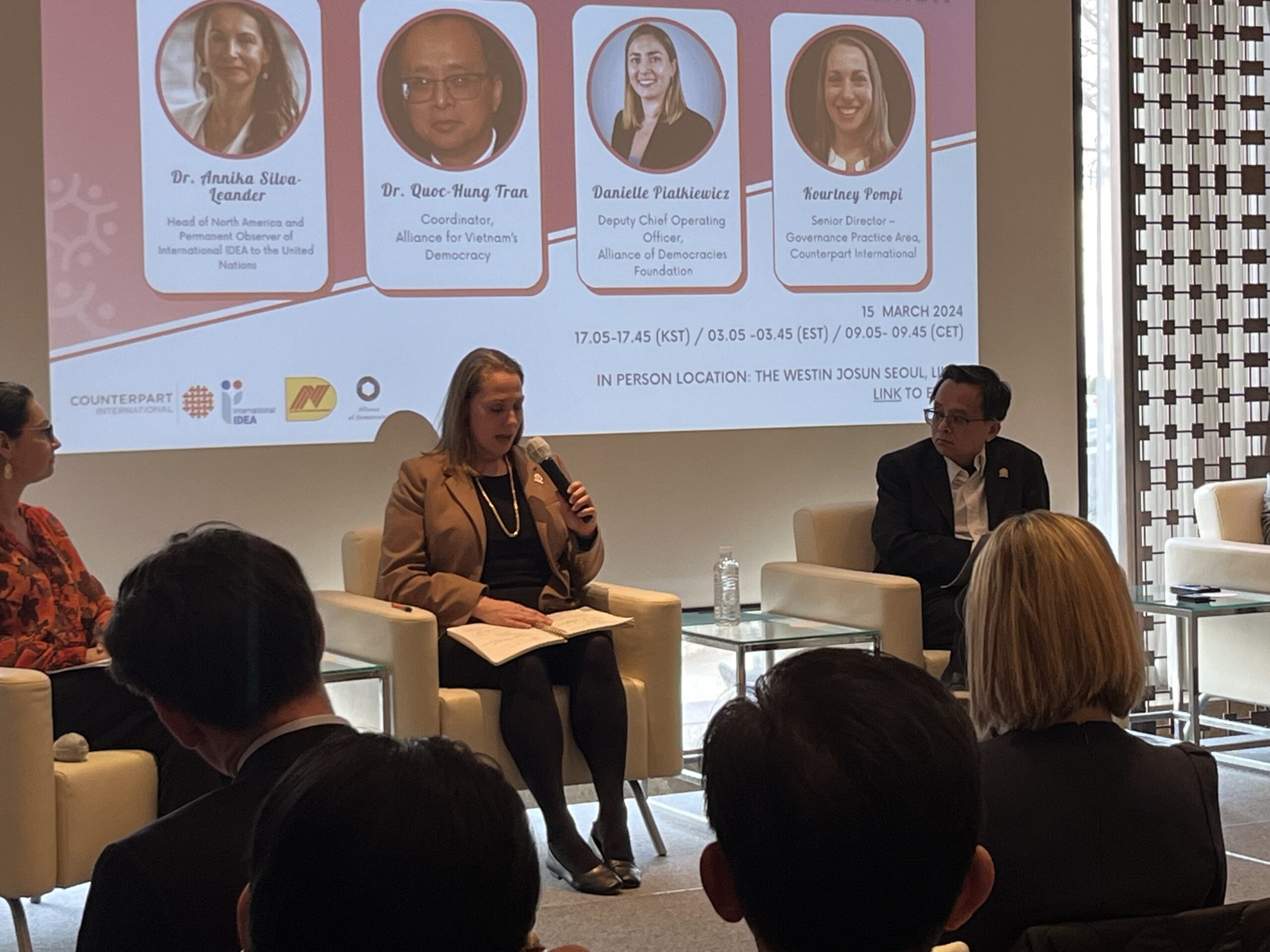
Counterpart’s senior director of governance Kourtney Pompi joins a panel at the Global Democracy Coalition Forum in Seoul, South Korea.
Leading up to the Summit, the Global Democracy Coalition hosted regional and global events with civil society organizations from every corner of the globe in pursuit of advancing democracy globally. This forum brought together democracy advocates, policy makers, and organizations from around the world to brainstorm together how to address challenges that democracy faces. As a Global Democracy Coalition coordinator, Counterpart played a key role in organizing these events and creating the space for civil society to have its voice heard before the Summit for Democracy. The Global Democracy Coalition Forum served as a clear reminder that civil society is necessary for the future and success of democracy.
The atmosphere of the Summit was one of both apprehension and hope. Apprehension because attacks against democracy seem to be coming from all angles. Despite this apprehension, the hope that underlined each event was undeniable. The mere act of coming together at the Summit for Democracy is one of steadfast defiance in the face of growing authoritarianism and fascism that seems to be sweeping the globe.
The most hopeful aspect of the Summit was the large presence of young people. Many events featured young activists whose opinions were at the core of discussions. Fostering this engagement moving forward is crucial.
For the Global Democracy Coalition’s Partners for Democracy Day on March 19, I moderated a panel discussion called Bridging Democratic Dissatisfaction: Empowering Youth, which gave young activists a platform where they spoke of the need for the international community to support civic education, so that young people have the tools they need to engage in their communities. The panelists, Aram Voskanyan, vice president of United Nations Association Armenia, Pamba Ojera, a communications officer at The Youth Café, and Peter Kafuko Waiswa, head of programs at Students for Global Democracy Uganda, encouraged youth to meaningfully participate in their communities and gave advice for how they can play an active role in democratic processes.
The future of democracy relies on young people having those tools to enable them to fight for the future they want. This year’s Summit for Democracy sets the stage for the international community to take up young people on their challenge to support them, their future, and democracy.



